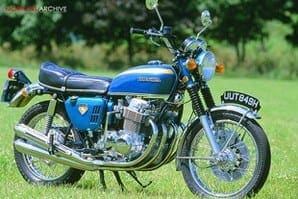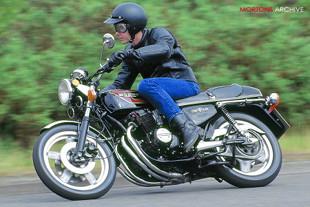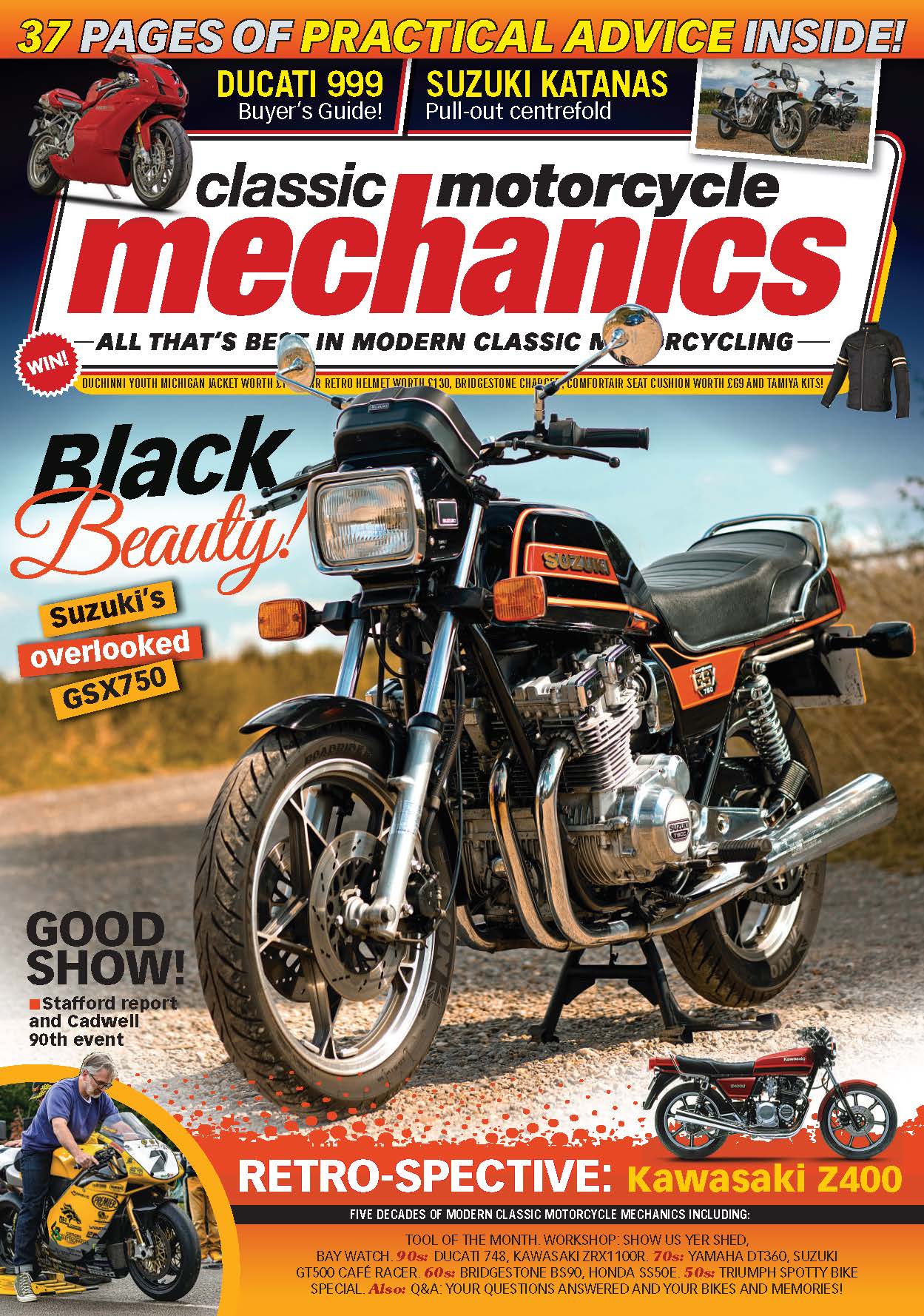
UJM; it’s become a term of derision aimed at inline-four-cylinder Japanese motorcycles that supposedly are all the same. Which is, of course, piffle. Go back to 1967 or 1bCB (before CB750) as we like to call it and you’ll remember that a sporting motorcycle was lucky to have two cylinders that worked for more than a month at a time.
Honda’s CB750 hit the markets in 1969 and transformed motorcycling forever. To the bike buying public the machine was simply light years away from the real world. Brits and Americans were thrashing the pants off 650 parallel twins with drum brakes, push rods and four-speed boxes, yet the Honda was 100cc bigger with five gears and a chain driven overhead cam. To rub salt into the wound, the Honda had a disc brake and electric start; technology for the masses and priced to sell. Things would never be the same again.
But within five years the CB750 was almost passé. Overtaken by Kawasaki’s Z1 and overshadowed by Suzuki’s GT and Kawasaki’s H2 triples.
Unfortunately for Honda, the CB was so well built that while the H2s and GT750s were thrashed and crashed to oblivion, only to resurface 30 years later as restoration projects with a reputation that made them all the more desirable, the CB750 lasted long enough to become a cheap hack for those of us wanting cheap bikes in the early 80s. So the CB’s star dwindled and many of us forgot just how impressive it had once been – it’s time to re-assess.
Our Spotter’s Guide covers the CB from 1969 through the K models to the F series.
CB750 Oct 1969 – Sept 1970
The original 300 series Honda 750/4 and often mistakenly referred to as the sand-cast model. This designation in fact only refers to the first 7414 machines made and is denoted by rough finish to engine cases. Carbs use four separate cables, airbox same colour as bike. Short plastic chain guard. Rear shocks are gas filled De Carbon type by Showa. Factory chain oiler, left-mounted horn on earliest models (pre frame number 1003951), right mounted after that. Sand-cast engine cases replaced by die-cast after engine number E1007415. Sand-cast cylinder head has no central bolt between the exhausts.
 The Ks – 1971-78, CB750K1-K8
The Ks – 1971-78, CB750K1-K8
CB750K1 (1971)
Minor revisions to engine breather, cylinder head, carb mountings (they run cam and bar linkages). The airbox is ribbed black plastic and the camchain tensioner and fittings receive mods in the light of dealer feedback along with clutch springs and engine mounts. The instruments get traditional Honda green faces instead of black, the lenses change from glass to plastic (along with the redline dropping from 8500 to 8000rpm) and the instrument bodies change from plastic to metal. Long plastic chain guard.
CB750 K2 (1972)
Combo unit with warning lamps and clamp replaces traditional bar mounts. Seat lock and two helmet holder hooks fitted. 300 series silencers replaced by quieter 341 items. Steel chain guard replaces black plastic item. Painted headlamp brackets change to chrome and the headlamp becomes black. Rear shock absorbers now oil damped.
CB750 K3/4/5 (1973-1975 not sold in UK
Although not sold in the UK, some of the mods appeared on our bikes. Upgrades to cylinder heads, valve stem oil seals refitted as per 1969 bikes. Front forks upgraded along with brake caliper mounting system. Cut out switch on clutch interlinked with gearbox and starter motor. Larger indicators fitted to K5 model plus new design of fuel tap. Rubber 'flip-up' pad fitted to sidestand. Daylight running lights fitted. Fuel tap moves from right (K4) to left-hand side (K5).
The 1976 K6 was a parts bin special with older, smaller indicators with parts from the F-series bikes. A mixture of old and new incorporating K3-5 mods and F1 swingarm. Engine breather deleted. UK model received a USA K2 grab rail. The final K7 and K8 had a model code of 405 replacing 341 and used many F-model upgrades (cases, head and pistons). Gaiters omitted from forks and rear shocks lost the shrouds. Updated four-into-four exhaust.
 The Fs – 1979-79, CB750 F1-F2
The Fs – 1979-79, CB750 F1-F2
1975 F0 & F1 (not sold in the?UK)
Sporty reworked model with higher compression and revised frame geometry. Four into one exhaust, new tank design with flush filler cap and matching tail unit. New front brake.
1977’s CB750 F2 had a twin disc front end with two horns, QH headlight and black engine. Valves sizes change; 32 to 34mm inlet, 28 to 31mm exhaust. Comstar wheels and 630 profile drive fitted.
CB750A (not sold in UK)
1977 Hondamatic automatic version, runs a wet sump motor and torque converter. ![]()




